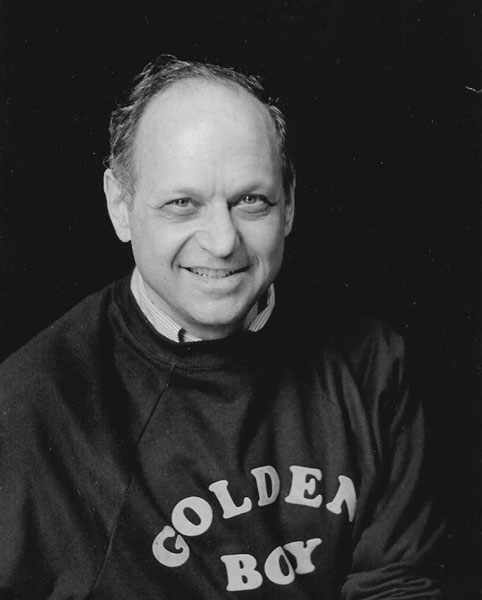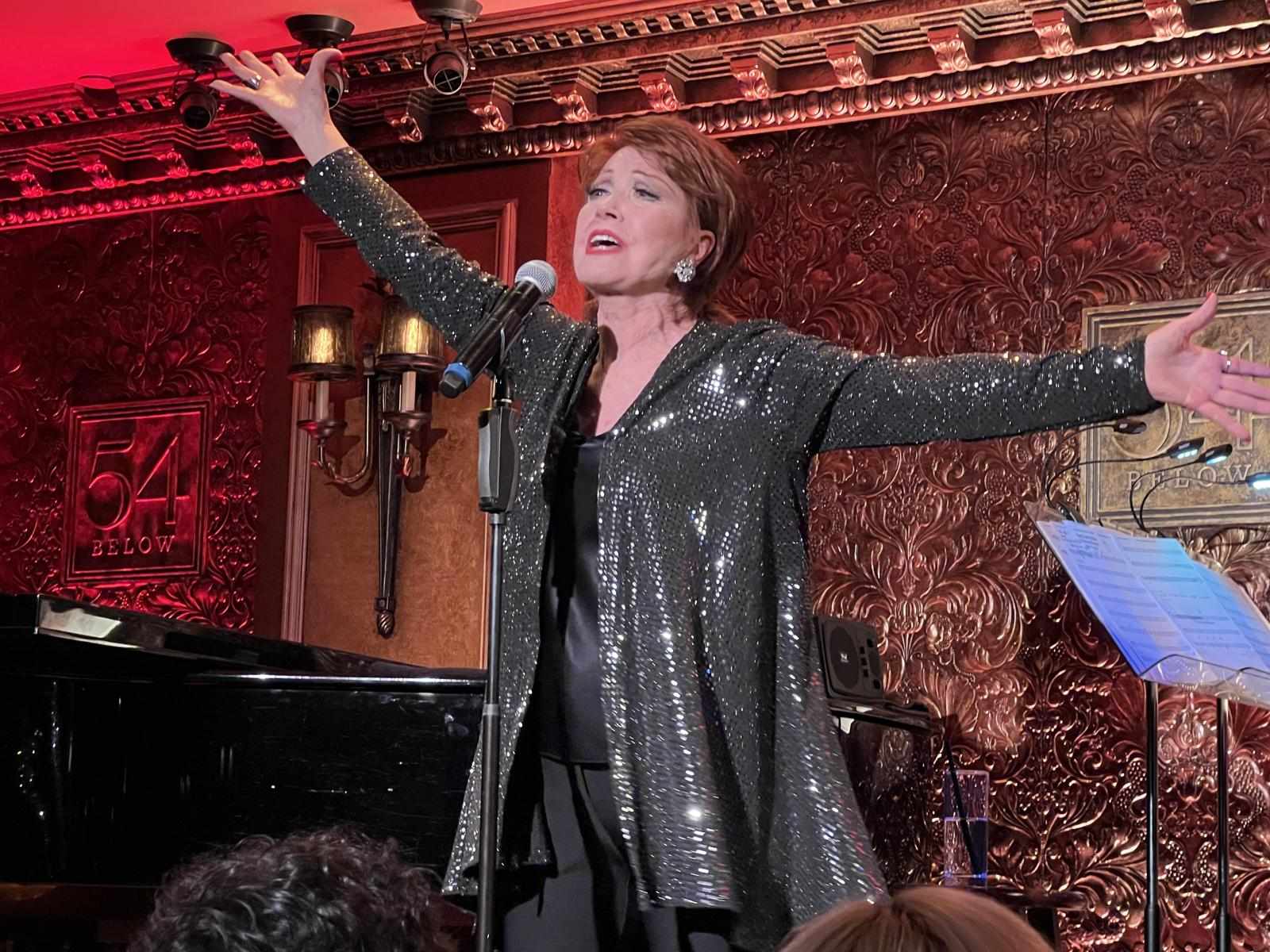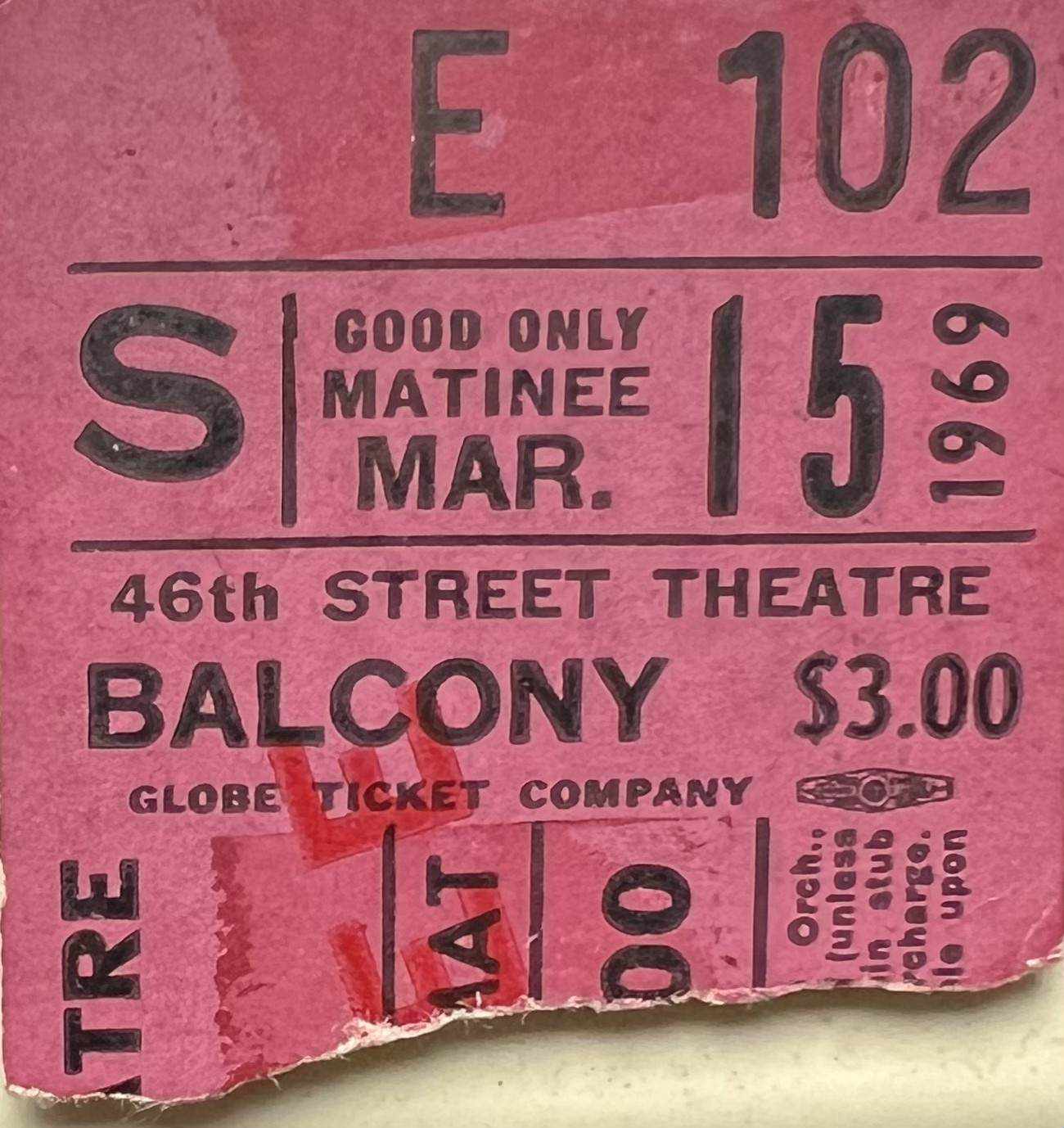
The Emmys are tonight, and though generally the least entertaining of awards show broadcasts (WAY too many categories), I always tune in with the hope of hearing a great speech from an actor or actress. And, if they happen to be a stage veteran, then the odds of seeing something memorable increase tangentially. For a few years, I had a close view of it all when I used to attend the Emmys, as well as the afterparty (the Governor's Ball), since my ex-wife was herself a Governor in the writer's branch of the Academy. But as I'm in Portugal tonight, more than 6,000 miles from Los Angeles, and with a time difference that means the show won't air live until 1:00 a.m. tomorrow morning, it will probably be the first time I've missed an Emmy broadcast in my life.
As for the purposes of this column, I thought I would discuss a noteworthy anniversary that occurred this very night at the Emmys back in 2004. This was when a filmed adaptation of an epic Broadway show, that had won the Tony and the Pulitzer Prize, stole the evening. It's hard to believe, but it was seventeen years ago that Tony Kushner's Angeles in America commanded the ceremony with an historic showing. Of its twenty-one nominations (then a record), it won eleven (another record) with an unprecedented sweep of the Outstanding Limited Series, Directing, Writing and all of the Acting awards (7/7), which was only matched this last awards season when the comedy series Schitt's Creek did the same trick.
Helmed by the legendary Mike Nichols, a masterful stage and film director, Angels' theatricality was captured and pulled off in ways that probably surprised its creative team. Due to the delicate balance required, such adaptations usually prove elusive, especially when you consider the scope of Kushner's writing (dramatic, comedic, political, literary), in addition to its sheer length. Viewed over three nights in the days before streaming, people were glued to their screens (it was the most watched cable film of the year), and it featured mesmerizing performances from Al Pacino, Meryl Streep and Emma Thompson, all working at career best levels, which for this particular trio is saying a lot (and the rest of the cast wasn’t too shabby either).
Angels in America: A Gay Fantasia on National Themes will always remain a unique achievement. Not only did Tony Kushner write two plays of ambitious length and complexity, but they were presented individually in back-to-back Broadway seasons, resulting in his winning the Tony Award twice in a row: one for Millennium Approaches in 1993, and one for Perestroika in 1994. Then, as planned by its producers, the two ran in repertory, allowing for audiences to appreciate both plays for whenever their schedule allowed (both in the same day, if so desired). Sadly, I never saw this Broadway production, a true regret of mine. At the time, I was living in Los Angeles and my children were two and four years-old, making trips to New York scarce. Happily though, I did see both parts a year prior to its New York productions in L.A., allowing me to witness and appreciate its genius first-hand.
Set in 1985, Angels’ main characters are six New Yorkers whose lives become unlikely entwined. The title springs out of the experience of Prior Walter, a gay man living with AIDS, who is visited upon by an angel. How it manages to explore the politics of Ronald Reagan's conservative White House and how it negatively ghettoized the AIDS epidemic, along with fanciful visits of its characters to Antarctica and heaven itself, is an alchemy of mystery aided and abetted by the nature of Kushner's beautiful writing.

Kushner originally received a commission to write Millennium Approaches from San Francisco’s Eureka Theatre (by way of the Federal government), shepherded by Eureka’s then co-Artistic Directors, Oskar Eustis (now the head of NY’s Public Theatre) and Tony Taccone (who recently ended his 33-year tenure as Artistic Director of Berkeley Repertory Theatre in 2019). During the time Angels was in development, Eustis was hired away by the Los Angeles Theatre Center, where he fought to bring Kushner’s play with him, resulting in something of a custody battle. As Eustis told the story in a Slate Magazine online article, Angels in America: The Complete Oral History, “I left my theater in effect to protect Angels, because the Eureka didn’t have the resources to develop it. I could either throw my hat into the ring with Angels, or I could stay in San Francisco and keep the Eureka going, and I chose Angels.” Matters became further complicated when, as Kushner explained, he hadn’t written yet Perestroika, “but to fulfill my contract, the Eureka insisted that we do a production of Angels.”
All this was going on behind the scenes when I saw Millennium Approaches at the Mark Taper Forum. I also saw (the following evening) the very long and nearly indescribable Perestroika. Of both plays one thing was clear: the quality of the writing, the themes Kushner interweaved through his disparate characters, and the overwhelming theatricality of it, were staggering. The work was raw, impassioned, intellectual (overly so, as some critics have sometimes carped), but undeniably powerful. And that doesn’t even take in the meaty roles that Kushner supplied for his actors, with everyone in the cast playing more than one character. Half the company came out of the small group involved in the play's early stages at the Eureka in San Francisco with Stephen Spinella as Prior Walter, Ellen McLaughlin as the Angel and Kathleen Chalfant as Hannah Pitt, remaining with the plays through L.A. and onto their Broadway incarnations.

For the HBO film, stars were brought in such as Mary Louise Parker for the major role of Harper Pitt, along with cameos from Simon Callow, James Cromwell and Michael Gambon. But three of its leads were courageously cast with stage actors, then in the early period of their film work: Justin Kirk as Prior, Patrick Wilson as Joe Pitt, Ben Shenkman as Louis Ironson, and the great Jeffrey Wright as Belize, the only member of the Broadway production repeating his performance. It was a stellar group, an ensemble of rare quality. In particular, the work of Pacino and Streep who, in their scenes together, battle one another as Roy Cohn and Ethel Rosenberg during Cohn's drug-induced fantasies. Scary, funny, and delicious, they have to be seen to be believed.

If for some reason this three-part, six-hour series has eluded you, what have you been waiting for? Currently streaming for subscribers on HBO and HBO MAX, it's also available to rent or purchase via Amazon. Having recently re-watched it for my third time, there is not only the poetry of Kushner's writing to revel in, but the resonance it still has nearly twenty years later. In these days of our country in a state of turmoil between left and right the likes of which haven't been seen since the Civil War, there's no better time to take in the art of a true masterpiece: one with the ability to reflect on a troubled past, comment on the present and, perhaps, even hold hope for the future.

If you enjoy these columns, check out Up in the Cheap Seats: A Historical Memoir of Broadway, available at Amazon.com in hardcover, softcover and e-book. Also, please follow me here on Scrollstack and feel free to email me with comments or questions at Ron@ronfassler.org.





















Write a comment ...